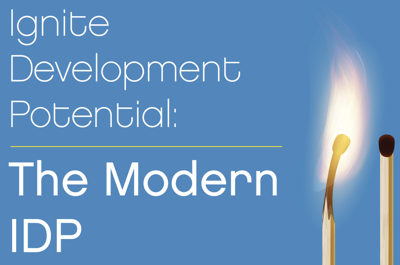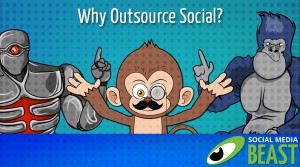— August 26, 2019

The human resources lexicon suggests that the universal definition of IDP is individual development plan, the process whereby leaders and employees engage in career and professional planning conversations designed to promote growth, engagement, retention and results.
But, in too many organizations, IDP also stands for ‘indifferently declining to participate.’ Busy managers and leaders struggle to make the time. And even when they do, the conversations frequently lack the depth, insight, inspiration, and tactical steps required to go from ideation to action. They’re frequently ‘check-the-box’ activities done for the purposes of compliance versus connection – lacking heart and meaningful follow-up.
It’s understandable how we’ve come to this point. In an effort to ensure that this critical activity happens, systems and processes have been well-meaningly implemented – leaving overwhelmed leaders with one more to-do on their endless lists. And, let’s face it… many leaders don’t know what exceptional development planning looks like because they’ve not experienced the receiving end of that conversation. Finally, because career development has been mistakenly conflated with promotions (which are in short supply), many managers work hard to avoid conversations that will contribute to frustration and dissatisfaction.
So, how can we transform the IDP from something that people indifferently decline to participate in to something that’s inspiring, delightful, and progress-generating? It all starts with a new mindset, one that recognizes and elevates the partnership between leaders and employees. Take this quick quiz to conduct your own development mindset check-up.
To what extent do you believe the following? 1=Not at all 7=Strongly
| 1 | Employees own their development and leaders have a keyrole in supporting them. | 1 | 2 | 3 | 4 | 5 | 6 | 7 |
| 2 | The free flow of candid information promotes development relationships and opportunities. | 1 | 2 | 3 | 4 | 5 | 6 | 7 |
| 3 | Sustainable career development is based upon trust. | 1 | 2 | 3 | 4 | 5 | 6 | 7 |
| 4 | Employees, leaders, and the organization have a mutual interest in everyone’s development—we all have a stake in seeing each other grow. | 1 | 2 | 3 | 4 | 5 | 6 | 7 |
| 5 | Career development offers value to employees and the organization. | 1 | 2 | 3 | 4 | 5 | 6 | 7 |
| 6 | Meaningful development can happen anytime and anywhere. | 1 | 2 | 3 | 4 | 5 | 6 | 7 |
| 7 | Ongoing conversation uncovers changing needs and evolving opportunities. | 1 | 2 | 3 | 4 | 5 | 6 | 7 |
Your Total______
These beliefs create a mindset that facilitates meaningful connections, enables conversation and an expanded awareness of how development operates. These beliefs allow for a development partnership between leaders and employees – one that’s satisfying and productive.
- If you scored 45 or above, you have this development partnership mindset. Use it generously and show others how it’s done.
- Scores of 40-45 suggest a strong partnership mindset that you can continue to build upon.
- Scores of 35-39 indicate that you possess some aspects of this mindset that serve you well. And there are some areas that could benefit from further consideration and effort.
- Scores below 35 offer an opportunity for you to really consider your experience of development, its importance to others, and how you might approach it differently.
Effective development planning begins with the right mindset. But it also requires specific skills to operationalize your beliefs in a way to result in the meaningful development of others. I had the pleasure of partnering with Berrett-Koehler to develop a free e-guide that addressed this topic. It explores:
- The reasons why IDPs so frequently fall short of what’s possible.
- How transforming the process can deliver the results organizations need, managers strive for, and employees want.
- Strategies for making the most of this employee touchpoint.
- Actionable dos and don’t’s the busy leaders can put into practice today.
Download the free e-guide, Ignite Development Potential: The Modern IDP today – and go from ‘indifferently declining to participate’ to ‘inspired, dedicated, and purposeful’ in your individual development planning efforts.
Business & Finance Articles on Business 2 Community
(157)
Report Post


